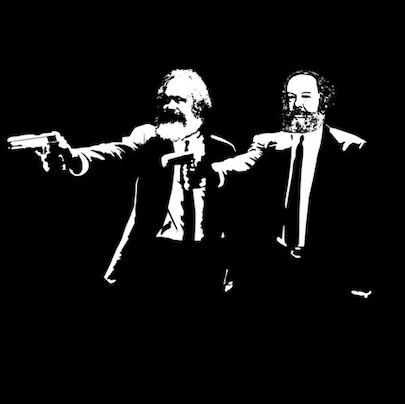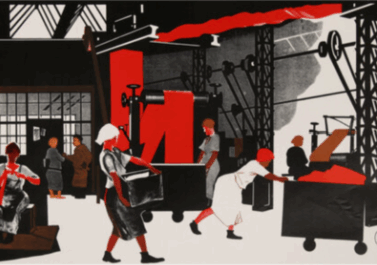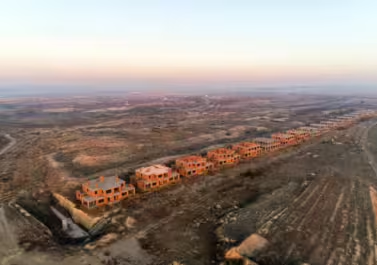
The end of our reading group is to help facilitate the fullest flourishing of the participants critical and intellectual capabilities, all in the service of the complete emancipation of humanity. The means deployed this month – reading a text concerned with reminding us that human beings simultaneously are shaped by and create our consciousness through our activity. So if we hope to achieve the fullest flourishing of our participants critical and intellectual capabilities we need means that give rise to the motivational drives appropriate for our ends……. the complete emancipation of humanity. Failure to do so would inevitably take us down a wrong turn on Malatesta’s high road.
Intro
Firstly the text was introduced as doing what Zoe Baker is want and able to do, in dispelling myths and perceptions of anarchist ideas as singularly moralistic and untheoretical. Whether you disagree or agree with the conclusions and contents, the ideas deserve consideration. It was remarked that the piece draws attention to commonalities between certain strains of anarchist and Marxist thought and action. Our group, made up as it is, of members originally hailing from both of these traditions, that have coalesced around this project without completely disowning their previous ideas, suggests that there is a lot more similarities and complementary aspects than is often given credit. It should be noted that this text is mainly a work of intellectual history, outlining the stated rationale classical anarchists gave against seizing state power and not explicitly a reflection of Zoe Baker’s own views.
Discussion
Among the group there was a relative amount of agreement that there has to be a certain level of continuity between means and ends. This is based on our general understanding of the way in which human’s are acted on by nature, but themselves, through their practice, act upon nature and in the process, change both nature and themselves. We talked about first hand experiences of this reproductive process within other organisations we’ve been in (electoral parties, old “revolutionary” parties, unions etc.) and how the participation in those organisations had resulted in the development of consciousness and corresponding activity, that deviated wildly from our intended ends.
Questions arose around how much this form of analysis, actually tells us about how we should organise. As an example, involvement in mainstream unions, especially in our current environment, is bound to have the negative effects on individual participants outlined in this text. In the advanced economies mainstream union’s have been largely integrated into the state and usually seek to defend and expand that integration. Even at times of mass struggle, syndicalist union’s felt the need set up specific anarchist and communist organisations within their union’s, to counteract the reformist tendencies of these “revolutionary” unions. This said, is abstention from all representative roles in today’s mainstream unions, which this text advocates with regards to the state, a serious position for someone intent on radical change to take? Activity as an unpaid workplace representative in a mainstream union will involve means that are not in accordance with our ends but will open up doors and opportunities for a capable workplace militant to further expand the class struggle and consciousness. Organisationally, the likely drift towards reformism can be tempered by involvement in specific revolutionary groups. Given this, should the taking of representative roles within the state be always prohibited, simply on the grounds of the means not corresponding to our ends, without further analysis of the wider situation? Are unions slightly different as institutions that are ostensibly created for the benefit of working class people, whereas the state is basically the opposite of that?
A group member was reminded on reading this text of a 1970’s text by Maximilian Rubel with a brilliant title- Marx, Theoretician of Anarchism- and wondered if this would make for good further reading. Marx’s Conspectus of Bakunin’s Statism and Anarchy was also suggested as being helpful for those attempting to understand the differences and similarities between classical anarchism and Marx. The possibility of a discussion with Zoe Baker (who describes herself as a Marxist and anarchist) was posited. Recent praise of Class Power on Zero Hours (AngryWorkers book) from comrades abroad, who also appreciate Zoe Baker’s work, was of interest in this regard.
Other group participants posited that while the discussion of ’anarchists’ vs. Marxists’ often leads into dead ends, there is something to say about the difference between an anarchist mode of analysis and one influenced by Marx. They surely have common aims, a classless society free from oppression, but while anarchists texts or analysis often start with the ‘goal’ and then work backwards to derive the appropriate means, a Marx influenced approach would start by looking at the actual conditions and struggles and see to what extent they can question the existing status quo. While anarchist analysis operates with the concept of antagonism, Marx might add the idea of contradiction. All this seems just philosophical bullshitting, but it makes a difference when it comes to practical politics.
In Zoe’s text the current ‘hierarchical’ decision making is opposed (antagonism) by a horizontal form of decision making – in form of federal councils – as an ideal. She rightly says that people who grow up in a hierarchical society somehow reproduce this in their thinking and acting, while a ‘communist’ society would have to reproduce itself by people being transformed through egalitarian processes of decision making. This is correct, but it leaves us somehow in a tautological loop – we explain power and the reproduction of power by power itself. Bringing in Marx would allow us to look more closely at what kind of material practice produces hierarchies and how changes in this practice create different conditions for emancipation. To give an example: peasants and serfs were surely opposed (antagonism) against the feudal rulers, but given their isolated and more individual form of producing their material lives and social relations their scope to form a social (!) alternative was limited. Capitalism reproduces this contradiction on a higher level. Workers can’t go back to the individual land and they depend on each other in order to set industry in motion. Through the specific form of the production process, which brings producers together only in separation, their daily practice produces capital as an alien power. Power is not given, it is an outcome of a specific material practice – the separation from the process of decision making ‘in politics’ is derived from the separation from the control over cooperation in production. Workers’ struggles, under these conditions of industrial society – and not necessarily their aims – produce a different type of social utopia.
In Baker’s text ‘economic’ (ownership of production) and ‘politics’ (decision making) remain oddly separated. There is a gap, which, in anarchism’, is only filled by power struggle. With Marx we could say that as long as the production process is structured in a way which leaves some people just repeating certain work-steps and other people isolated as ‘intellectual workers’ there won’t be a chance for an equal decision making process. We could give everyone an equal right and vote and property title – as long as the social division of labour is not questioned, the voice of the ‘experts’ – who have a wider overview over social production – will have much more clout. We would have yet another ‘workers’ state’ in name only. We can further say that the actual struggles – if we look at 1968 to 1973 – question this hierarchical division of labour, as, for example, capitalist development has brought universities and factories in a closer relation to each other. A lot of this is not addressed in the arguments contained in this text and points to possible deficiencies within the arguments more than the text, which, as stated above, has a distinct and different purpose.
Have you read this text? Have a read, it’s not long. What did you think? Get in touch.



